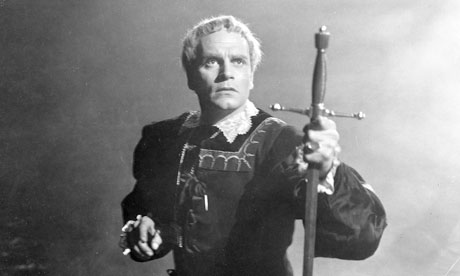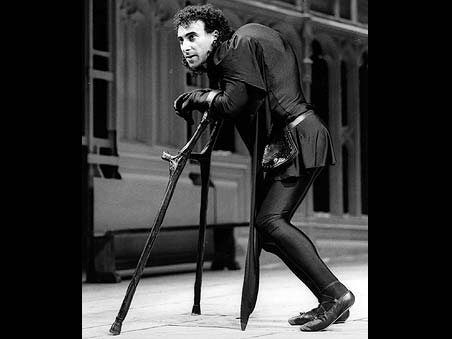I. Introduction
The main Shakespeare’s purpose is to sustain the divine providence
and restore the peace and order. The path to achieve this is primarily by
drawing human beings to perfection. In the quest for mastering human characters
with all their good and bad features, Shakespeare often struggles to balance
between good and evil.
Furthermore, the common, ordinary and yet witty and wise
conversations, tend to produce the sense of reality. When all these elements
are combined we get a living character. But being a living character means
coming to terms with all human desires and ways to achieve them. People are
hardly ever sure what really want to achieve. And that is the human feature.
Questioning our decisions and actions is what makes us weak. Particularly this
issue, the phenomenon called conscience, will be discussed regarding the
consequences of it through the prism of the main characters’ attitudes in the
plays Hamlet, Richard III and Macbeth.
II. Short overview of the male characters in these plays
In the play Hamlet the
Prince of Denmark, the central issue is Hamlet’s tendency to perform the
good on Earth. Thus two conflicts appear. On the one hand is his desire to
fulfil the ghost’s demand for revenge. On the other, is his awareness that it
would involve him in evil himself. In fact he is tormented by his conscience
whenever he decides to take action.

The play Macbeth
is a study of the human potential for evil. It illustrates the concept
of the downfall of a human being. Macbeth comes to a point where the aim to be
crowned is achieved. Also he has met his wife’s expectations in proving his
masculinity, but all these to the expense of his tranquillity. Here the
apparitions and madness point to the power of conscience.

Similarly, in the
play Richard III, main character’s
immense capacity for crime is a final, climactic instance of the disruptive
ambitions to win the kingdom. Richard exemplifies something larger than his own
fascinating personality and hubris. What is stronger than him is his conscience,
again as in Macbeth, taking the form of ghosts and apparitions that does not
even allow him to sleep.

III. Common characteristics
What all these characters have in common are certainly
temptations of different kinds that drive them into sin. The tendency to be
sinners and that also stands for cowards, is deep in the origins of their
nature. In fact particularly that is what makes humans be humans. Many scholars
have discussed particularly on this topic and the standings vary a lot.
Coleridge identifies the conscience issue with the Shakespeare’s “deep and
accurate science in mental philosophy”(Larque). Furthermore in another of his
lectures, Coleridge notes that “we are always loth to suppose that the cause of
defective apprehension is in ourselves, the mystery has been too commonly
explained ... by the capricious and irregular genius of Shakespeare.”(Foakes 75).
Others believe that consciousness is the vehicle that is driven by good
intentions, and can end up maliciously when not being managed moderately. But
it is the conscience that appears as a consequence of the struggle to play on
the safest side by maintaining both the religion and personal beliefs. In his
essay “On consciousness” Montaigne tries to define it “Nevertheless
amongst the honest men that follow, of those I say divers are seene, whome
passion thrusts out of the bounds of reason, and often forceth them to take and
follow unjust, violent and rash counsels.” (Florio 384).
IV. Different approaches
Another scholar, Harold Bloom, perceives Shakespeare “to have invented the human by writing
characters that change, struggling with their own nihilism in the face of
mortal finitude. He argues that Shakespeare invented characters whose inwardness
or individuated conscience is unprecedented in literary history.”(Bloom).
Shakespeare achieved a fundamental break with his predecessors. We cannot
merely say Shakespeare’s characters are true likenesses of people. Shakespeare
did not imitate humanity already simply in existence; rather, in a real sense,
he invented the human as we now understand it. The nihilizing conscience of
Shakespeare’s major characters, mark them as beings who evade
contextualization.
But mainly the most accurate
definition on conscience is given by Ovid:
“As each mans minde is
guiltie, so doth he
Inlie breed hope and feare,
as his deeds be.” (Ovid. Fast. i. 485.)
Regarding this,
we will discuss that all our deeds have made our mind feel guilty. They are breaded
with hope and fear at the same time. And what mostly influences are our former,
but certainly our following deeds as well.
V. Hamlet
Hamlet is the main protagonists in the play “Hamlet”. He is
considered to have whispering conscience before doing the ghastly act. Hamlet’s troubled mind demonstrates the development of an acceptance of
life despite the existence of human evil. It is visible the most in his most
quoted soliloquy:
To
be, or not to be- that is the question:
Whether
'tis nobler in the mind to suffer
The
slings and arrows of outrageous fortune
Or
to take arms against a sea of troubles,
And
by opposing end them…
..Thus
conscience does make cowards of us all (III.1: 57-84)1
Over and over again he struggles to find the right path, to revenge his
father or not, to kill himself or not. He has the action and the pace of the
play in his own hands, and is constantly delaying as if Shakespeare wanted to
embody the anticipation in our real lives. The critical element in this
development is the prince’s recognition of evil in himself. Also, in containing
both good and evil, he represents the dual nature of humankind. The
reconciliation of humanity with its own flawed nature is a central concern.
Actually it is the flawed nature what bothers his conscience the most.
Particularly that is what cuts his freedom of action, although he can deal in a
practical manner with the world of intrigue that surrounds him. Hamlet manages
to direct our attention often to his own concerns, large issues such as
suicide, the virtues and defects of humankind, and the possibility of life
after death. Above all, his circumstances demand that he considers the nature
of evil. He declares that his life is not worth “a pin’s fee” (I.4.65); indeed,
he longs for death, as he declares more than once, wishing “. . . that this too
sullied flesh would melt” (I.2:129) and declaring death “. . . a consummation -
Devoutly to be wish’d” (III.1:63–64)
Many times he considers and then rejects a self-slaughter. Once it is
because of the religious injunction against it and once out of fear of the
afterlife. Towards the end, he still remains calm, coming to terms with the
futility of his philosophical inquiries. Probably that way he found relief for
his inquiring conscience.
VI. Richard III
Another human duality is represented
in the Richard III. Here the major character Richard is made to be evil representation.
However, when he shows his feelings, we can see that deeply inside him, lays
frustrated and hurt man. Partly it is due to his physical deformity and in the
analogy of that his psychological deformity as well. He rationalizes his
rejection of human loyalties by theorizing that his physical nature has placed
him beyond ordinary relationships. All this leads to his conscious choice to
reject love and brotherhood and to embrace egotism and self-sufficiency. Thus
he can claim, “I am myself alone” (V.6:83). Through his monologues and asides,
he brings the audience into an almost conspiratorial intimacy with him: “O
coward conscience, how dost thou afflict me!/...Cold fearful drops stand on my
trembling flesh.”(V.3:179/181) He struggles to suppress the voice of his
conscience, trying to convince himself that there is nothing to be afraid of:
What do I fear? Myself? There's none else by
Richard loves Richard; that is, I am I.
Is
there a murderer here? No-yes, I am.
And his soliloquy continues like a dialogue with his conscience which
triggers hatred and love at the same time inside him:
I am a villain; yet I lie, I am not.
Fool,
of thyself speak well. Fool, do not flatter.
My
conscience hath a thousand several tongues,
And
every tongue brings in a several tale,
And
every tale condemns me for a villain (V.3:191-195)
Yet, the corrupted conscience is that what drives him into all these evil
deeds. Even when he has bad dream and apparitions, he does not want to embrace
the repentance. Eventually, he struggles with the realization that he is an
evil person who is to be punished, although his primary choice was particularly
that- to prove himself a villain.
VII. Macbeth
The third play in this parallel is Macbeth, a play in which, the
duality is not represented only in one person, but symbolically there are two main
protagonists. The aim that Shakespeare had on mind possibly was to give two
people which will complement each other. He achieves that complementation and
further on he achieves to make his point stronger. From two apparently strong
characters, at the end we get two crushed and fallen pieces. Macbeth, the duke
and his wife Lady Macbeth, are tempted and they cannot resist. Macbeth’s weakness is compounded by the urging of the equally ambitious Lady Macbeth
and the encouragement given him by the “Wicked sisters”. One of the play’s
manifestations of the power of evil is the collapse of Macbeth’s personality.
Macbeth commits, or causes to be committed, more than four murders: first, that
of the king, which he performs himself (II.2), and then those of Banquo (III.3)
and of Lady Macduff and her children in (IV.2). His behaviour during and after
each of these events is different, yet Macbeth still retains the moral
sensibility to declare:
“I dare do all that may become a
man.
Who
dares do more is none” (I.7:47-48)
But Lady Macbeth encourages him to
overcome his scruples, and he kills the king (II.2). He is immediately plagued
by his conscience; he tells of how he “could not say ‘Amen’” (II.2: 24) and of
the voices that foretold sleeplessness. His absorption with his bloody hands
foreshadows his wife’s descent into madness (V.1). Nevertheless, he carries his
plot through and is crowned although he is aware that he has put “rancors in
the vessel of his peace” (III.1). The peak of his consciousness prickling is
after the banquet when he sees the ghost of Banquo:
MACBETH.
If I stand here, I saw him.
LADY
MACBETH. Fie, for shame!
MACBETH.
Blood hath been shed ere now, i' the olden
time,
Ere
humane statute purged the gentle weal;
Ay,
and since too, murthers have been perform'd
Too
terrible for the ear. The time has been,
That,
when the brains were out, the man would die,
And
there an end; but now they rise again,
With
twenty mortal murthers on their crowns,
And
push us from our stools. This is more strange
Than
such a murder is (III.4:77- 84)
VIII. Summary
To sum up in all this range
of actions and characters, one thing remains certain, Shakespeare remains
controversial but at the same time so close to human nature and thus close to
us, as if he were our contemporary. The issue of conscience links all these
characters as they all fit into the dual framework of human nature; the battle
between good and evil, the tempting situations and inability to resist them
even when the conscience slaps their minds. As it has been explored here, no
matter how reasonable Hamlet is, or evil Richard is, or mad Macbeth and Lady
Macbeth are, they all fall into their own traps of conscience that drive them
all to tragic end in order to be
sustained the myth of divine providence. Furthermore, punishment reaches them
all in the very moment when they become aware that their conscience is already
corrupted. No matter which behaviour pattern they choose, we come to the
beginning to prove that:
“As each mans minde is
guiltie, so doth he

